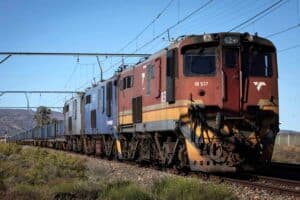The country’s debt has risen from R1.6trn to R5.6trn in a decade – and now stands at 75% of GDP.

The annual Medium-Term Budget Policy Statement (MTBPS) announcement in October is an important event at which the National Treasury offers insights into the health of the public purse.
The main February budget is much more short-term focused, but over the past decade, the country’s financial problems have migrated from short-term to long-term.
Ten years ago, in 2014, South Africa’s total debt was R1.6 trillion or 43% of GDP. In 2024, it rose to R5.6 trillion or 75% of GDP. This represents a spike in total debt of 250% in a decade.
Debt is not necessarily bad if used to invest in future prosperity. Unfortunately, this did not happen. In 2014, South Africa’s GDP was R3.6 trillion, which rose to R7.4 trillion in 2024, an increase of only 105%.
There are many reasons, but the most pronounced are state capture, corruption, poor leadership and ineffective spending. It is a disastrous legacy for our children and their children, as they will have to repay this debt.
ALSO READ: Medium-term budget: Finance Minister Enoch Godongwana’s debt warning
In fact, the surge in debt is the opportunity cost of poor and dishonest governance.
In this sense, the MTBPS’s central message is a very negative one full of alarm bells, which the finance minister tried to camouflage with his focus on the government’s plans for the future.
I interviewed Enoch Godongwana on Wednesday after he delivered his MTBPS.
He was in a fighting mood following questions about why the government’s previous growth plans were ineffective and why we should believe the new plans would result in accelerated growth.
Godongwana’s responses were littered with jargon such as “structural reforms”, “infrastructure investment”, and a “more capable public sector”. Still, he did not explain why they would work where previous efforts failed.
Unfortunately, we have heard this song approximately 10 times over the past decade, and the words have become hollow.
Albert Einstein apparently defined insanity as doing the same thing repeatedly and expecting different results. Current policies are just not working.
ALSO READ: MTBPS: No SOE bailouts, early retirement for 30 000 public servants
I don’t know if the government of national unity (GNU) will make much of a short-term difference. It seems politically fragmented, with different parties more focused on scoring political points.
I do not sense that all parties are committed to working together to change the unproductive policies. Until this happens, Godongwana or the next guy will continue with empty promises.
However, it is not total doom and gloom, mostly because average South Africans, especially private businesses, have learned over the years that you shouldn’t expect too much from the government.
They have adapted to survive, and some have become pretty good at it.
The fact that the South African economy doubled over the past decade is a testament to the adaptability. It also symbolises private companies and communities becoming less dependent on the government.
This article was republished from Moneyweb. Read the original here.
Support Local Journalism
Add The Citizen as a Preferred Source on Google and follow us on Google News to see more of our trusted reporting in Google News and Top Stories.






